|
Yuan Overtakes Dollar in Chinese Cross-Border Transactions This was the headline that came into my email a few days ago. A week ago, someone sent me a link to a videoconference where the premise was that the dollar was going to become “extinct.” Someone else emailed saying that they heard on the “news” that BRICS was forming a new currency that would put the dollar out of business. So, what’s real, what are sensationalized headlines and what is an outright ruse? Let’s dig in and discover. Below are a few of the areas we’ll plumb. Yuan Overtakes Dollar in Chinese Cross-Border Transactions The PetroYuan Global Reserve Currencies Is the Dollar on the Brink of Extinction Will There be a BRICS Currency? Global Tensions and Uncertainty Bank Failures And here is more color on each of these topics. Yuan Overtakes Dollar in Chinese Cross-Border Transactions It was reported by Reuters on April 26, 2023, that the Chinese yuan overtook the dollar in Chinese cross-border transactions in March. Who is trading with China using the yuan? (Russia, Iran, Venezuela, Indonesia and Argentina) Does this have anything to do with Russian sanctions? (yup) How does this stand in the global marketplace? (small) Is the yuan on a path to dominate the world’s reserve currency? (not yet) Keep reading… The PetroYuan For more than a decade now, China and Russia have been building up their reserves of gold. The goal was to establish a gold-backed currency that could be used for trading, particularly with regard to the hottest and most widely traded commodity on the world market, oil. We’ve been writing about this for years. (See below for a list of some of the relevant blogs.) This came in quite useful when Russia was banned from SWIFT. According to Reuters, "The yuan's share of Russia's currency market has leapt to 40% to 45%, from less than 1% at the start of last year. Its share of world trade financing, according to SWIFT, has increased to 4.5% in February from 1.3% two years ago. The dollar's is 84%." Global Reserve Currencies Since the trading of the yuan is new to the global stage, China and Russia wanted to assure potential customers that using the petroyuan would be secure, and that paper assets could be traded in for gold upon demand. However, it hasn’t yet translated to a meaningful challenge to the petrodollar. According to the IMF, the Chinese renminbi made up less than 3% of the world’s currencies in the 4th quarter of 2022. Many countries are still reticent to use the petroyuan. Why? The dollar is freely convertible and highly liquid, while the yuan is not. According the Washington Post, there are also concerns about the yuan being a “managed currency produced by an opaque and unpredictable financial machine.” So, just how much gold does China have? As you can see in the chart below, the United States treasure trove of gold is almost double that of Russia and China combined. Is the Dollar on the Brink of Extinction YouTube videos are going viral about an impending extinction of the dollar. While the Chinese renminbi is crawling toward a greater global share of the reserve currency, it is still one of the most thinly held and traded. It is crawling forward in relevancy, from not present at all just a few years ago. Russia, a country that is having great difficulty trading with many other countries, is the biggest customer. Will There be a BRICS Currency? The European Union managed to create the euro, so can Brazil, Russia, India, China, and South Africa do the same? At this point it appears that only Russia, Iran, Venezuela, Indonesia and Argentina are trading with China using the yuan. China is courting Saudi Arabia. However, if the reports are to be believed, there’s little interest in the Middle East to switch from settling in dollars to settling in yuan. India is a democracy, and the two countries have a border dispute in the Himalayas. While China is India’s biggest trading partner, Reuters just reported that India has directed traders not to settle purchases of Russian oil and coal in yuan. It’s difficult to imagine India and China being part of the same central currency. There is just so much difference between the styles of governance, and the tensions can run pretty hot between those two countries. So, who is the person talking up a BRICS reserve currency? He is Alexander Mikhailovich Babakov, a man who is very friendly with the current President of Russia, who is currently under EU, Canadian, Swiss and U.S. sanctions. He received the Order of Merit to the Fatherland (Russia) in 2020, and has received a number of other awards from his Presidential friend. (Someone you might entrust with your money?) The Russian propaganda machine is quite effective. How many people who are hearing about the BRICS currency know the “news” is coming from Babakov? (How many hucksters are capitalizing upon his statements to scare people into buying their scams?) Another question that one might ask is why would anyone want to use a BRICS reserve currency? Russia is under heavy sanctions for what many people in the world have characterized as an illegal war. Neither China nor Russia is revered around the world as icons of personal freedoms, where we’d all love to move to. And the collective gold reserves of the BRICS block would be 20% of what is held by the United States and the European Allies. While anything is possible, it would be an extremely dystopian world when the country that is now being the most heavily sanctioned becomes the world’s reserve currency. It’s a feat of social media gaming by Babakov to make this unlikely alliance sound plausible. Global Tensions and Uncertainty We’re all keenly aware that there are alarming global tensions, war and uncertainty in the world. There’s far too much debt. The pandemic isn’t fully behind us. Central governments are raising interest rates to cool inflation. However, companies that have enjoyed free borrowing for so long are now facing serious trouble. Over half of the S&P500 is at or near junk bond status. There is a lot of fuel for the fire of conspiracy theories. Bank Failures The fate of First Republic Bank will likely be announced early this week. The Federal Reserve has set up a system to help banks keep from having to mark down the unrealized losses on their bond portfolios, which keeps their earnings looking better than they would otherwise look. However, it’s too soon to say that the crisis is behind us. Bottom Line There is truth in to the supposition that China and Russia would like to have their own reserve currency, and break the dominance of the U.S. dollar on the world stage. However, the larger question is whether or not the rest of the world wants to dive in. So far, interest in trading in the Chinese yuan is limited to less than 5% of trades. It’s unlikely that the U.S. dollar becomes extinct or the Chinese yuan replaces the euro and all of the other basket of currencies as the world’s reserve currency -- at least not in the foreseeable future. Too many people enjoy the liquidity and stability of the euro, pound and dollar, and the adventures to be enjoyed in Europe, the United Kingdom and the United States. Freedom is at the top of our list of democratic ideals. It is really fear that fuels these conspiracy theories. If we want to dampen the threat a BRICS currency might pose in the future, we’ll need to kick our oil addiction (that fuels the Russian economy) and stop using China as the factory to the world. Over half of each barrel of oil is used for plastic, polyester, the vinyl seats in our cars, rubber tires, the asphalt on our roads and other petrochemical products. Oil touches every aspect of our lives. Click to read a blog to discover how we can break our dependency on oil. (It’s not as easy as just buying an electric car.) The petrochemicals that spilled all over Palestine, Ohio are used to make quotidien products, even our tableware. So What is the Cure? The cure is admittedly complicated. We must know what is safe in the world that is drowning in debt, where long-term bonds are losing as much or more as stocks. We must know how to take a measured approach to hedges like gold, silver, and/or crypto (rather than be lured to dive all in with BRICS bait). We must have a system for rebalancing and capturing gains. Our Thrive Budget® is a system to stop making everyone else rich at our own expense, including the landlord, the debt collector, the taxman, the gasoline station, the insurance salesman, the utility company, and more. Our easy-as-a-pie-chart investing with regular rebalancing is a time-proven, 21st Century plan that earned gains in the Great and Dot Com Recessions, and outperformed the bull markets in between Safe income-producing hard assets that you purchase for a good price will hold their value better in a Debt World. When we stop reading sensational headlines and drown out the nightmarish noise, we can put our emotions on the right side of the trade. This may sound difficult, but it costs less time and money than most of us spend. That is why we call it the life math that we all should’ve learned in high school. The sooner we implement it the better we’ll sleep at night, and the faster our lives transform. Other Russia/China Blogs of Interest Russia Sold U.S. Treasuries. Bought Gold. Why OPEC Really Cut Oil Production Join us for our Real Estate Master Class on June 3, 2023 and our full money makeover retreat June 10-12, 2023. Email [email protected] or call 310-430-2397 if you are interested in learning time-proven investing, budgeting, debt reduction, college prep, ESG and home buying solutions that will transform your life and heal our planet at our next Financial Freedom Retreat. We spend one full day on what's safe, helping you to protect your wealth and reduce money stress.  Join us for our Online Financial Freedom Retreat. June 10-12, 2023. Email [email protected] to learn more. Register by April 30, 2023 to receive the best price and a complimentary private prosperity coaching session (value $600). Click for testimonials, pricing, hours & details.  Join us for our Restormel Royal Immersive Adventure Retreat. March 8-15, 2024. Email [email protected] to learn more. Register with friends and family to receive the best price. Click for testimonials, pricing, hours & details. Early Bird pricing ends May 30, 2023. There is very limited availability.  Natalie Pace. Photo by Marie Commiskey. Natalie Pace. Photo by Marie Commiskey. Natalie Wynne Pace is an Advocate for Sustainability, Financial Literacy & Women's Empowerment. Natalie is the bestselling author of The Power of 8 Billion: It's Up to Us and is the co-creator of the Earth Gratitude Project. She has been ranked as a No. 1 stock picker, above over 835 A-list pundits, by an independent tracking agency (TipsTraders). Her book The ABCs of Money remained at or near the #1 Investing Basics e-book on Amazon for over 3 years (in its vertical), with over 120,000 downloads and a mean 5-star ranking. The 5th edition of The ABCs of Money was released on September 17, 2021. Natalie Pace's easy as a pie chart nest egg strategies earned gains in the last two recessions and have outperformed the bull markets in between. That is why her Investor Educational Retreats, books and private coaching are enthusiastically recommended by Nobel Prize winning economist Gary S. Becker, TD AMERITRADE chairman Joe Moglia, Kay Koplovitz and many Main Street investors who have transformed their lives using her Thrive Budget and investing strategies. Click to view a video testimonial from Nilo Bolden. Check out Natalie Pace's Apple Podcast. Watch videoconferences and webinars on Youtube. Other Blogs of Interest Empty Office Buildings & Malls. Frozen Housing Market. The Online Global Earth Gratitude Celebration 7 Green Life Hacks The Debt Ceiling. Will the U.S. Stop Paying Bills in June? Fossil Fuels Touch Every Part of Our Lives Are There Any Safe, Green Banks? 8 Fires the Federal Reserve Board Needs to Put Out. 7 Ways to Stash Your Cash Now. Lessons from the Silicon Valley Bank Failure. The 2 Best Solar Stocks Which Countries Offer the Highest Yield for the Lowest Risk? Rebalance By the End of March Solar, EVs, Housing, HSAs -- the Highest-Yield in 2023? Are You Anxious or Depressed over Money? Why We Are Underweighting Banks and the Financial Industry. You Stream all the Channels. Should You Invest, Too? NASDAQ is Still Down -26%. Are Meta & Snap a Buy? 2023 Bond Strategy Emotions are Not Your Friend in Investing Investor IQ Test Investor IQ Test Answers Bonds Lost -26%, Silver Held Strong. 2023 Crystal Ball for Stocks, Bonds, Real Estate, Cannabis, Gold, Silver. Tilray: The Constellation Brands of Cannabis New Year, New Healthier You Tesla's $644 Billion Fall From Mars Silver's Quiet Rally. Free Holiday Gift. Stocking Stuffers Under $10. Cash Burn & Inflation Toasted the Plant-Based Protein Companies Save Thousands Annually With Smarter Energy Choices Is Your FDIC-Insured Cash Really Safe? Giving Tuesday Tips to Make Your Charitable Contribution a Triple Win. Is Your Pension Plan Stealing From You? The FTX Crypto Fall of a Billionaire (SBF). Crypto, Gold, Silver: Not So Safe Havens. Will Ted Lasso Save Christmas? 3Q will be Released This Thursday. Apple and the R Word. Yield is Back. But It's Tricky. The Real Reason Why OPEC Cut Oil Production. The Inflation Buster Budgeting and Investing Plan. No. Elon Musk Doesn't Live in a Boxabl. IRAs Offer More Freedom and Protection Than 401ks. Will There Be a Santa Rally 2022? What's Safe in a Debt World? Not Bonds. Will Your Favorite Chinese Company be Delisted? 75% of New Homeowners Have Buyer's Remorse Clean Energy Gets a Green Light from Congress. Fix Money Issues. Improve Your Relationships. 24% of House Sales Cancelled in the 2nd Quarter. 3 Things to Do Before July 28th. Recession Risks Rise + a Fairly Safe High-Yield Bond DAQO Doubles. Solar Shines. Which Company is Next in Line? Tesla Sales Disappoint. Asian EV Competition Heats Up. 10 Wealth Strategies of the Rich Copper Prices Plunge Colombia and Indonesia: Should You Invest? 10 Misleading Broker/Salesman Pitches. Why are Banks and Dividend Stocks Losing Money? ESG Investing: Missing the E. Bitcoin Crashes. Crypto, Gold and Stocks All Crash. The U.S. House Decriminalizes Cannabis Again. The Risk of Recession in 6 Charts. High Gas Prices How Will Russian Boycotts Effect U.S. Multinational Companies? Oil and Gas Trends During Wartime Russia Invades Ukraine. How Have Stocks Responded in Past Wars? 2022 Crystal Ball in Stocks, Real Estate, Crypto, Cannabis, Gold, Silver & More. Interview with the Chief Investment Strategist of Charles Schwab & Co., Inc. Stocks Enter a Correction What's Safe in a Debt World? Money Market Funds, FDIC, SIPC: Are Any of Them Safe? My 24-Year-Old is Itching to Buy a Condo. Should I Help Him? The 12-Step Guide to Successful Investing. Gardeners Creating Sanctuary & Solutions in Food Deserts. The Bank Bail-in Plan on Your Dime. Rebalancing Your Nest Egg IQ Test. Answers to the Rebalancing Your Nest Egg IQ Test. Important Disclaimers Please note: Natalie Pace does not act or operate like a broker. She reports on financial news, and is one of the most trusted sources of financial literacy, education and forensic analysis in the world. Natalie Pace educates and informs individual investors to give investors a competitive edge in their personal decision-making. Any publicly traded companies or funds mentioned by Natalie Pace are not intended to be buy or sell recommendations. ALWAYS do your research and consult an experienced, reputable financial professional before buying or selling any security, and consider your long-term goals and strategies. Investors should NOT be all in on any asset class or individual stocks. Your retirement plan should reflect a diversified strategy, which has been designed with the assistance of a financial professional who is familiar with your goals, risk tolerance, tax needs and more. The "trading" portion of your portfolio should be a very small part of your investment strategy, and the amount of money you invest into individual companies should never be greater than your experience, wisdom, knowledge and patience. Information has been obtained from sources believed to be reliable. However, NataliePace.com does not warrant its completeness or accuracy. Opinions constitute our judgment as of the date of this publication and are subject to change without notice. This material is not intended as an offer or solicitation for the purchase or sale of any financial instrument. Securities, financial instruments or strategies mentioned herein may not be suitable for all investors. Empty Office Buildings and Malls. Frozen Housing Market. Includes 7 Real Estate Tips on Housing, REITs and Income Property Housing is under the attack of inflation and interest rates. Office buildings are still quite empty, due to the Work-From-Home trend. Malls have a lot of vacant shops, after a Retail Apocalypse that just won’t end. Existing Home Prices Lose 10% of Value Home prices dropped -10% year over year and pending sales were down -5.2% in March. However, even with the industry weakness, homes are still unaffordable in most areas of the United States. Real estate prices have soared over the last 15 years, with a pronounced jump up in shelter inflation during and after the pandemic. Even empty buildings and vacant strip malls are still carrying a high valuation. Many of the bugaboos of real estate are part of a new (and problematic) normal that are not as transient as investors are hoping high interest rates will be. (In earnings reports and all over blogs and media, we’re hearing that CEOs and investors are banking on interest rates only going up slightly this year, and then starting to lower in 2024.) That is why it is very important to have a sound and measured plan for any housing, income property or REITs investment we are looking at, or currently have. Below are 7 tips for getting on the right side of the transaction. FYI: I’ll also be hosting a Real Estate Master Class on June 3, 2023. Email [email protected] for details. 7 Real Estate Tips Real Estate is down -10% Buyer’s Remorse Date Around Before You Get Married Interview Your Home Like You Would Your Soul Mate The Buy Low, Sell High Continuum Empty Office Buildings and Shopping Malls REITs And here is more information on each. Real Estate is down -10%. In June of 2022, the median existing-home price hit a high of $416,000. Since then, prices have been decreasing – at a faster pace in the areas that heated up the most. In March of this year, the average price was $375,700. Which way will prices go in 2023 and 2024? That has a lot to do with: · Supply (which is increasing, something that causes rates to fall) · Demand (Millennials are tired of living with their parents, but…) · Affordability (most homes are still too expensive) · Loan Practices (getting tighter due to the bank failures and new standards for a lower Debt-to-Income Ratio) · Interest Rates (predicted to be 6.0% this year and 5.6% in 2024, which doesn’t help affordability and makes it less likely for a mortgage to be approved) A lot of people want to own a home. However, they are being priced out, or it is taking up too much of the budget, or they don’t qualify for a loan. That might be a blessing in disguise, however, because most recent buyers have buyer’s remorse. Buyer’s Remorse Survey after survey keep revealing the same results – buyer’s remorse is rampant among pandemic purchasers. (Click to read my blog from August 2022 on this topic.) What are people so upset about? Some overpaid, others discovered that the cost of homeownership is a lot more than they bargained for, and many felt pressured to purchase quickly or sight unseen. Again, if we consider that once we own the home (or the time-share), it’s ours, and it might not be easy to unload it anytime soon, then we might want to take our foot off the gas and make sure that we’re going to want to sleep under the same roof for the next 7-10 years to come (at minimum). Date Around Before You Get Married Owning real estate is a lot like getting married. It’s a lot more responsibility than we might realize, and once we own something, it might be ours for the rest of our life. Property is an asset that can be hard to sell, especially during recessions. While we own it, the costs of upkeep, property taxes, maintenance, insurance and other unplanned expenses continue. Interview Your Home Like You Would Your Soul Mate What kind of information will help us to make the best choice for our sanctuary home? Some of the most important and candid considerations are never going to be offered by the realtor, who is trained to stick to the ABC script – Always Be Closing. Check out the A 10-Point Checklist for Home Buyers and 7 Real Estate Case Studies in the Real Estate section of The ABCs of Money, 5th edition, to help you identify your perfect home in the housing dating pool. Read up on these considerations before taking the home and property tours. The Buy Low, Sell High Continuum A -10% discount is welcome. However, on average, we’re still paying more than double than anyone who purchased in 2011. The price is still very high on the Buy Low, Sell High Continuum. Checking the price history will sober us up. At market tops, everyone thinks that prices will never go down. At market bottoms, the opposite is the assumption. In truth, there are cycles of strength and weakness that are closely tied to business cycles, with regional areas of strength or weakness weighing in. While all real estate sank like a rock in the Great Recession, Detroit had it even worse due to the bankruptcy restructurings of General Motors and Chrysler in 2009. Are there any solutions for high shelter inflation? Buyers who think outside the box and shop in the shadow inventory can be rewarded with a price reduction of at least 1/3. These are some of the areas we’ll examine in the Real Estate Master Class on June 3, 2023. Silicon Valley Bank was based in Santa Clara. First Republic Bank has headquarters in San Francisco. Signature Bank was headquartered in New York City. All of these cities still have a lot of empty office buildings. The Work-From-Home trend has been more persistent than office building owners would have liked. While the official vacancy rates are 16.4% and 9.75% for San Francisco and New York, respectively (source: National Association of Realtors), the unused space is much higher. There are still a lot of commercial leases on the books, even in offices that are not being used. JLL says the vacancy rate is closer to 25.1% in San Francisco, which still seems low when you consider how many downtown lunch spots are still shuttered. In January of this year, the New York City REIT (symbol: NYC) changed its name to American Strategic Investment Co. to raise some much-needed money from an equity offering. Clearly the name NYC CRE was a liability in the fundraising efforts, even though all of their buildings lie in Manhattan and Brooklyn. Some companies are trying to sublease. Others are cutting their office footprint, when the lease term expires. Many employees are embracing a flex schedule of a few work days in the office and a few at home. This is redefining how space is being used, with some companies offering shared desks and work space, creating a much smaller lease footprint than in the past. REITs* *Real Estate Investment Trusts Empty office buildings are not just a problem for commercial real estate building owners, shareholders and bondholders. They are also a challenge for the banks and bondholders who loan them money. According to TREPP, Signature Bank was a significant holder of CRE debt before it was seized by the FDIC last month. Bank insolvencies in turn make CRE move vulnerable, as the failed banks occupy a lot of CRE. Investors are drawn into REITs for the yield. However, is an 8-9% yield worth it when you lose over 80% of your capital? Many commercial real estate REITs have seen their stock drop by -85% or more from the highs enjoyed before the pandemic. Mall REITs are not faring much better. Is high-yield a red flag? Is the old adage, “The higher the dividend, the higher the risk,” true? Yield is tricky. That is why I recently held a Bond Master Class and have had multiple blogs and videoconferences on the topic. There is new, short-term, fairly creditworthy debt that is paying a decent interest rate. On the other hand, there are also high-risk junk bonds that try to lure investors in with high interest rates. The older the company is, the more likely that high interest rates will be very risky. (We spend one full day on What's Safe? at our Financial Freedom Retreat, June 10-12, 2023. Office Properties Income Trust was downgraded from BBB- to junk (BB+) on March 31, 2023 by S&P Global. At the same time, Hudson Pacific Properties was put on a negative CreditWatch for its BBB- rating. Boston Properties, Brandywine, Office Properties Income Trust, Piedmont Office Realty Trust Inc., and Vornado Realty Trust were assigned a negative outlook. A downgrade from investment grade to junk status typically causes share prices to sink. According to the rating agency, “We expect office assets to underperform other real estate property types over the next two years given expected pressure to net effective rents and occupancy levels.” Another concern is that “the office sector also has relatively higher debt leverage than other property types.” Email [email protected] if you’d like to receive our CRE & Malls Stock Report Cards. All of the companies on the CRE stock report card have lost money over the past year. While housing prices are only down -10%, the real estate industry (REITs) has been one of the worst performers on Wall Street. Bottom Line Home prices are down by -10% since the median highs of $416,000 set in June of 2022. However, that doesn’t mean that real estate is a bargain, or that we should jump into a shotgun wedding, thinking we’ve landed the love of a lifetime. It’s important to sober up from any swoon we might experience and cast our vision 7-10 years in advance before deciding where and how we want to settle down, and just how much a marriage to this home is really going to cost us. A look at where prices were in 2011 could operate as a wet towel, while we drink some coffee and look deeply at why the numbers don’t add up. Will the allure look as lustrous under the unforgiving light of midday sun as it does when the realtor broker/salesmen is talking it up? With regard to housing, let’s date around before we get married. With regard to mall and CRE REITs, it’s a better idea to just say, “No.” Join us for our Real Estate Master Class on June 3, 2023 and our full money makeover retreat June 10-12, 2023. Email [email protected] or call 310-430-2397 if you are interested in learning time-proven investing, budgeting, debt reduction, college prep, ESG and home buying solutions that will transform your life and heal our planet at our next Financial Freedom Retreat. We spend one full day on what's safe, helping you to protect your wealth and reduce money stress.  Join us for our Online Financial Freedom Retreat. June 10-12, 2023. Email [email protected] to learn more. Register by April 30, 2023 to receive the best price and a complimentary private prosperity coaching session (value $600). Click for testimonials, pricing, hours & details.  Join us for our Restormel Royal Immersive Adventure Retreat. March 8-15, 2024. Email [email protected] to learn more. Register with friends and family to receive the best price. Click for testimonials, pricing, hours & details. Early Bird pricing ends May 30, 2023. There is very limited availability.  Natalie Pace. Photo by Marie Commiskey. Natalie Pace. Photo by Marie Commiskey. Natalie Wynne Pace is an Advocate for Sustainability, Financial Literacy & Women's Empowerment. Natalie is the bestselling author of The Power of 8 Billion: It's Up to Us and is the co-creator of the Earth Gratitude Project. She has been ranked as a No. 1 stock picker, above over 835 A-list pundits, by an independent tracking agency (TipsTraders). Her book The ABCs of Money remained at or near the #1 Investing Basics e-book on Amazon for over 3 years (in its vertical), with over 120,000 downloads and a mean 5-star ranking. The 5th edition of The ABCs of Money was released on September 17, 2021. Natalie Pace's easy as a pie chart nest egg strategies earned gains in the last two recessions and have outperformed the bull markets in between. That is why her Investor Educational Retreats, books and private coaching are enthusiastically recommended by Nobel Prize winning economist Gary S. Becker, TD AMERITRADE chairman Joe Moglia, Kay Koplovitz and many Main Street investors who have transformed their lives using her Thrive Budget and investing strategies. Click to view a video testimonial from Nilo Bolden. Check out Natalie Pace's Apple Podcast. Watch videoconferences and webinars on Youtube. Other Blogs of Interest The Online Global Earth Gratitude Celebration 7 Green Life Hacks The Debt Ceiling. Will the U.S. Stop Paying Bills in June? Fossil Fuels Touch Every Part of Our Lives Are There Any Safe, Green Banks? 8 Fires the Federal Reserve Board Needs to Put Out. 7 Ways to Stash Your Cash Now. Lessons from the Silicon Valley Bank Failure. The 2 Best Solar Stocks Which Countries Offer the Highest Yield for the Lowest Risk? Rebalance By the End of March Solar, EVs, Housing, HSAs -- the Highest-Yield in 2023? Are You Anxious or Depressed over Money? Why We Are Underweighting Banks and the Financial Industry. You Stream all the Channels. Should You Invest, Too? NASDAQ is Still Down -26%. Are Meta & Snap a Buy? 2023 Bond Strategy Emotions are Not Your Friend in Investing Investor IQ Test Investor IQ Test Answers Bonds Lost -26%, Silver Held Strong. 2023 Crystal Ball for Stocks, Bonds, Real Estate, Cannabis, Gold, Silver. Tilray: The Constellation Brands of Cannabis New Year, New Healthier You Tesla's $644 Billion Fall From Mars Silver's Quiet Rally. Free Holiday Gift. Stocking Stuffers Under $10. Cash Burn & Inflation Toasted the Plant-Based Protein Companies Save Thousands Annually With Smarter Energy Choices Is Your FDIC-Insured Cash Really Safe? Giving Tuesday Tips to Make Your Charitable Contribution a Triple Win. Is Your Pension Plan Stealing From You? The FTX Crypto Fall of a Billionaire (SBF). Crypto, Gold, Silver: Not So Safe Havens. Will Ted Lasso Save Christmas? 3Q will be Released This Thursday. Apple and the R Word. Yield is Back. But It's Tricky. The Real Reason Why OPEC Cut Oil Production. The Inflation Buster Budgeting and Investing Plan. No. Elon Musk Doesn't Live in a Boxabl. IRAs Offer More Freedom and Protection Than 401ks. Will There Be a Santa Rally 2022? What's Safe in a Debt World? Not Bonds. Will Your Favorite Chinese Company be Delisted? 75% of New Homeowners Have Buyer's Remorse Clean Energy Gets a Green Light from Congress. Fix Money Issues. Improve Your Relationships. 24% of House Sales Cancelled in the 2nd Quarter. 3 Things to Do Before July 28th. Recession Risks Rise + a Fairly Safe High-Yield Bond DAQO Doubles. Solar Shines. Which Company is Next in Line? Tesla Sales Disappoint. Asian EV Competition Heats Up. 10 Wealth Strategies of the Rich Copper Prices Plunge Colombia and Indonesia: Should You Invest? 10 Misleading Broker/Salesman Pitches. Why are Banks and Dividend Stocks Losing Money? ESG Investing: Missing the E. Bitcoin Crashes. Crypto, Gold and Stocks All Crash. The U.S. House Decriminalizes Cannabis Again. The Risk of Recession in 6 Charts. High Gas Prices How Will Russian Boycotts Effect U.S. Multinational Companies? Oil and Gas Trends During Wartime Russia Invades Ukraine. How Have Stocks Responded in Past Wars? 2022 Crystal Ball in Stocks, Real Estate, Crypto, Cannabis, Gold, Silver & More. Interview with the Chief Investment Strategist of Charles Schwab & Co., Inc. Stocks Enter a Correction What's Safe in a Debt World? Money Market Funds, FDIC, SIPC: Are Any of Them Safe? My 24-Year-Old is Itching to Buy a Condo. Should I Help Him? The 12-Step Guide to Successful Investing. Gardeners Creating Sanctuary & Solutions in Food Deserts. The Bank Bail-in Plan on Your Dime. Rebalancing Your Nest Egg IQ Test. Answers to the Rebalancing Your Nest Egg IQ Test. Important Disclaimers Please note: Natalie Pace does not act or operate like a broker. She reports on financial news, and is one of the most trusted sources of financial literacy, education and forensic analysis in the world. Natalie Pace educates and informs individual investors to give investors a competitive edge in their personal decision-making. Any publicly traded companies or funds mentioned by Natalie Pace are not intended to be buy or sell recommendations. ALWAYS do your research and consult an experienced, reputable financial professional before buying or selling any security, and consider your long-term goals and strategies. Investors should NOT be all in on any asset class or individual stocks. Your retirement plan should reflect a diversified strategy, which has been designed with the assistance of a financial professional who is familiar with your goals, risk tolerance, tax needs and more. The "trading" portion of your portfolio should be a very small part of your investment strategy, and the amount of money you invest into individual companies should never be greater than your experience, wisdom, knowledge and patience. Information has been obtained from sources believed to be reliable. However, NataliePace.com does not warrant its completeness or accuracy. Opinions constitute our judgment as of the date of this publication and are subject to change without notice. This material is not intended as an offer or solicitation for the purchase or sale of any financial instrument. Securities, financial instruments or strategies mentioned herein may not be suitable for all investors. If you’re anything like me, you’re constantly learning new information about creating greater harmony with our home planet. In a world where it is so easy and convenient to be part of the problem, it requires commitment, courage and accurate information to create solutions (and to silence the noise and misinformation that is so prevalent). For instance, did you know that less than 9% of the plastic that we sort and put in the proper bin actually gets recycled, or that transportation is the biggest CO2 problem (our driving)? So, imagine taking an hour (well 73-minutes) to breathe in the wisdom of the individuals like you and I who have created fun and inspiring projects that are transforming their own communities – real-world examples. Most of our contributors have created beautiful videos of their work in action. Everything is presented with an element of earth gratitude because when we treasure something, we treat it differently. In other words, we'll enjoy learning about what is happening around the world, and should find a lot of aha! moments to embrace in our own lives. I’m listing a little information about each one of the contributors below, as well as how to stream the celebration, watch free film screenings and download complimentary ebooks. You can watch the celebration live at 7 pm PT on LiveFromEarth.net, or on our Facebook Page, https://www.facebook.com/EarthGratitude/. Our partners at Unify are also streaming live. If this time is inconvenient for you, simply go to https://www.youtube.com/@earthgratitude, where you can watch it any time you wish. Please share with your friends, family & followers as well. There are many free sustainability resources on https://earthgratitude.org/, including a link to download the ebook The Power of 8 Billion: It’s Up to Us for free (in the U.S.). In other countries, the ebook is priced at less than $5. The Earth Gratitude project is honored to feature a community screening of Mission: Joy, and to provide a link to watch how Great Britain came together to plant over 3 million trees to honor the Platinum Jubilee of H.M. Queen Elizabeth II (narrated by Dame Judi Dench). And here is more information on the visionaries and organizations featured in the 2023 online global Earth Gratitude celebration… I’m listing their Instagram handles to make it easy to like, share, follow and support their work. You’ll also see their website information on their featured segment. If you’re looking for a great way to honor Mother Nature this Earth Day weekend, consider donating your time, talent and/or money to one of these worthy projects. @kisstheground & @natkelley are teaching us that delicious #organic food rejuvenates the soil & stores more carbon than even the #rainforests. @ronfinleyhq Finley believes that growing your own food is like printing your own money. He created a #garden of Eden in a food desert. @pachamamaorg works closely with indigenous leaders at the sacred headwaters of the Amazon #rainforest to preserve & protect the lungs & heart of our home planet. @greenourplanet has built 197 school gardens in Las Vegas, saving almost 50 million gallons of water each year. Even celebrity chefs buy their produce! @edibleschoolyard grows their own food, has a compost row, cooks using Alice Waters’ recipes & has students who love kale pesto. @wildlifedirect is teaching kids in Kenya to protect #elephant #giraffe & other wildlife. @tonyjuniper offers green tips so that each of us can be a part of the solution. @masterzhigangsha & @queendiambi are building #Tao wells in the Democratic Republic of Congo (with thanks to @waterside_publishing)... In the 1960s, the founders of Findhorn became famous for growing 35-pound cabbages. Now, the community prospers with organic gardening, solar, wind, reedbeds waste management, compost, biking, carshare and spirituality... @earthdaynetwork calls on all of us to do our part to end #plastic #pollution. Stephane Le Foll first introduced 4p1000 Initiative at COP21. Since then soil regeneration and carbon stewardship have been embraced by farmers and leaders around the world. Mission: Joy (a great documentary that we are proud to screen this weekend) and the Big Joy Project show us how to refuel our mental health with happiness, even in troubled times. @drmarkhyman knows that healthy food is the solution for so many of our personal challenges. @donjoseruiz talks about #gratitude @ creating anything we desire to. @BriannaBrownKeen is our host. All this and much more in an inspiring hour of earth gratitude on Earth Day today. Visit https://earthgratitude.org/ now for a link to the livestream, to watch free films and to grab your free gifts. Join us on social media at https://www.youtube.com/@earthgratitude, https://www.facebook.com/EarthGratitude/, https://www.instagram.com/earth_gratitude/, and https://twitter.com/Earth_Gratitude. If you'd like to experience an unforgettable week stepping into sustainability, while staying at a royal manor house, consider joining me for our immersive adventure. Click below to learn more.  Receive the best price when you register by May 30, 2023. Call 310-430-2397 or email [email protected] to learn more now!  Natalie Pace in a green silk blouse. Photo by: Marie Commiskey. Taken at the Powerscourt Ritz Carlton in Ireland. Natalie Pace in a green silk blouse. Photo by: Marie Commiskey. Taken at the Powerscourt Ritz Carlton in Ireland. Natalie Wynne Pace is an Advocate for Sustainability, Financial Literacy & Women's Empowerment. Natalie is the bestselling author of The Power of 8 Billion: It's Up to Us and is the co-creator of the Earth Gratitude Project. Check out Natalie Pace's Apple Podcast. Watch videoconferences and webinars on Youtube. Other Blogs of Interest 7 Green Life Hacks 7 Green Life Hacks Save Thousands Annually! Also Planet-Friendly. Most of us are a little fatigued with all of the climate information, and we probably feel that we’re doing all that we can, until we hear that… · Less than 9% of the plastic crap that we put in the proper bin actually gets recycled · Polyester and plastic are made from oil… in fact, over half of each barrel of oil is used to make plastic, polyester, vinyl (like our car seats), rubber (tires), asphalt (roads)… Is there a moment of our lives that doesn’t touch a petrochemical? · The toxic chemicals used to make the petrochemical products listed above just spilled all over Palestine, Ohio… That’s enough to depress the Happy Face emoji… unless we turn it into anger and allow it to fuel us to make different choices. (Anger is a powerful fuel when directed toward a positive action.) What’s truly amazing is that there are 7 Green Life Hacks that are better for the planet (the water we drink, air we breathe, food we eat…) and can literally save each one of us thousands annually in our budget. (Happy Face emoji with stardust glittering all over it…) 7 Green Life Hacks Shop Local Eat Local, Organic Food Walk and Bike More Use Less Electricity Compost Food Scraps Choose Cotton & Cashmere. Ditch Polyester. There’s No Excuse for Single Use + Health Savings Accounts And here is how it works… Shop Local When we get our things shipped from far away, it takes a lot of fossil fuels and CO2 to land on our front porch. That’s not even factoring in the trees that are cut down to make the packaging and the plastic filler that’s made from oil byproducts. Be inspired by England’s Most Powerful Green Lobby, the 4-9-year-olds at Damers First School, who grow their own food, have eliminated most of the plastic from their school, compost their food waste and have even convinced many local businesses to do much of the same. (Watch the 6-minute video made by the team at EarthGratitude.org.) Shopping local keeps money flowing in our community. This is an important part of having a thriving city. Eat Local, Organic Food If we are not eating local and organic, we are very likely eating rainforest beef and Cancer Alley chicken, in addition to the planetary costs of shipping. What do I mean by that? Rainforests are burned down in Brazil to make way for industrialized cattle production. About 1/10th of the beef currently imported into the U.S. is from Brazil. If you haven’t heard about cancer alley, that’s worth, looking at Wikipedia page on it. The chemicals used in industrial chicken and pork farms flows into the Gulf of Mexico and has created an enormous dead zone where literally nothing can survive. If the toxins are that bad for sea life, how can it possibly be good for humans? Can we grow our own food to save money? At Compton Community Garden, families can rent a garden box and grow all the produce that a family of 4 needs for about $200/year. (Click to read a blog on that project.) A lot of community gardens have a master gardener who offers courses, and a lot of great information on gardening can be found online and on social media. Walk, Bike and Take Public Transportation More As you saw in the chart below, transportation is the largest CO2 emitter. Part of the problem is having China be the factory to the world and having everything we own shipped to us from around the globe, but that’s not the full story. Most European cities have a CO2 footprint that is half or less that of world metropolises. People in the United States, Australia, Canada, and the Middle East have the highest CO2 footprint per capita. The main reason for that is that biking and walking cultures are more developed in Europe. Getting rid of gridlock, pollution and CO2 didn’t happen by accident. Here’s a picture of Amsterdam in the 1970s. Amsterdam is now a place where almost everyone commutes by bike. When you look at things from a different angle (like looking down at traffic jams from a bird’s eye view), the solutions seem obvious. Healthy people who bike and walk more are less likely to suffer from obesity, and the problems that come from that. That can save a lot of time and money spent on doctors and medicine. It might also mean that you should think about a Health Savings Account, instead of spending an arm and a leg on health insurance. But there are even more savings to be had by ditching the car. The average car owner spends $8,000 or more annually (when you factor in the car payment, the insurance costs, gasoline and maintenance). Many people find that walking, and biking, combined with the occasion taxi, Zip car or car rental can save thousands of dollars annually. Click to read about the former Mayor of Santa Monica’s household, where they have one car, four adults and five bikes, and about my 8 Green Days in Santa Monica (without a car). Use Less Electricity Most of us can save thousands annually with smarter electric choices. That can be achieved with simple tools, like an on/off switch, a timer, a thermostat, a smart homeowner’s app and/or proper insulation. When I asked a handyman and an electrical engineer how much they spend on electricity each month, both told me less than $50/month – without the use of solar panels, simply with smarter choices. Rooftop solar homeowners typically enjoy those kinds of savings as well, though it is always smart to get your megawatt usage down as low as possible regardless of the power source. In the United States about 60% of our power is generated from fossil fuels. That varies state by state. (Click to see the generation sources of your state.) There’s no reason to heat water while we’re asleep or out of the house. I think of a coal or nuclear plant firing up before taking the elevator. Can I simply take the stairs? Every time we switch off and power down, no matter on who’s dime it is, we are contributing to a lower CO2 footprint. Compost Food Scraps Many cities want homeowners and business owners to put food scraps in the yard waste bin. Some, like Seattle, even mandate that, and fine you if you don’t. Why? Because about 60% of food waste goes to the landfill and becomes methane, a toxic pollutant. While it’s in your trash, it can be pretty stinky. Composting is a great way to turn food scraps into fertilizer. Damers First School receives donations for their compost and has used the money to build a nature area and outdoor classrooms. Green Our Planet has helped 197 schools in Las Vegas save 49.3 million gallons of water each year. That's a lot of money that can be used for instruments, teachers and outdoor learning gardens. The kids at the Edible Schoolyard in Berkeley, California, Alice Waters’ charitable organization, manage their own compost row. The school will be featured in the 2023 online global Earth Gratitude celebration. I encourage you to go to earthgratitude.org for all of the details on how to watch their lesson on composting, and other inspiring sustainability projects around the world. I store my food scraps in the freezer, which makes it very easy to take to the compost bin. In Santa Monica, CA, it’s just out back in the alley. In Manhattan, there are many compost drop-off points – usually just a few blocks away. Choose Cotton, Wool, Cashmere and Alpaca. Ditch Polyester. Polyester is a petrochemical that leaches pollutants into our water supply every time it is washed. So, recycling, reusing or buying vintage doesn’t make it sustainable. If we all choose natural fiber clothing, the fashion designers will give us what we want. Cotton, wool, cashmere and alpaca are the most sustainable. Wood-based fibers like viscose and rayon are better than petrochemical clothing, but require a lot of processing and water to produce. There’s No Excuse for Single Use Now that we know plastic isn’t getting recycled and forests are being flushed down the toilet, there’s no excuse for single use in today’s world. We can drink our designer lattes in a reusable mug, or at a sit-down café. We can use recycled toilet paper. We can share #NoExcuseForSingleUse on social media, especially when calling out celebrities and shows that try to normalize drink and dump behavior. What would happen if we took all of our plastic containers back to the store where we purchased them, with a message in a bottle saying, “Please end plastic pollution?” Would they figure out a different way to get our goods to us? If everyone of us did that, things would change overnight… Let’s be brave and creative. + Health Savings Accounts If we are healthy and spending a lot on health insurance, we could stop making the health insurance company rich, keep a lot of that money for ourself, build up our own health savings account and take a tax credit, while still having protection in case of a catastrophic event. It’s a good idea to start the HSA early for the budget savings and because it becomes our best long-term health care plan. Learn more about Health Savings Accounts in the Thrive Budget section of The ABCs of Money 5th edition. 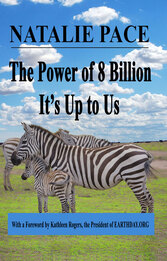 Bottom Line When we learn a new truth, it shifts the way that we act forever. I encourage you to read, share and review The Power of 8 Billion: It’s Up to Us to learn the facts about how easy it is to adopt these green hacks that fuel our richer lives with thousands of dollars in annual savings. The ebook is free in the U.S. on April 22nd, for 5 days only. Also, this weekend’s 2023 online global Earth Gratitude celebration will feature 73-minutes of inspiring sustainability, conservation and environment projects from 5 different continents -- all presented with an element of gratitude, solutions and vision. Access the livestream at https://earthgratitude.org. Email [email protected] or call 310-430-2397 if you are interested in learning time-proven investing, budgeting, debt reduction, college prep, ESG and home buying solutions that will transform your life and heal our planet at our next Financial Freedom Retreat. We spend one full day on what's safe, helping you to protect your wealth and reduce money stress. 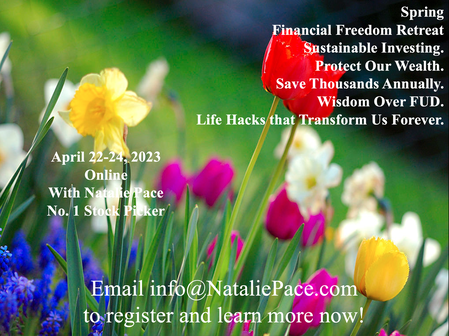 Join us for our Online Financial Freedom Retreat. April 22-24, 2023. Email [email protected] to learn more. Register with friends and family to receive the best price. Click for testimonials, pricing, hours & details.  Join us for our Restormel Royal Immersive Adventure Retreat. March 8-15, 2024. Email [email protected] to learn more. Register with friends and family to receive the best price. Click for testimonials, pricing, hours & details. Early Bird pricing ends May 30, 2023. There is very limited availability.  Natalie Wynne Pace is an Advocate for Sustainability, Financial Literacy & Women's Empowerment. Natalie is the bestselling author of The Power of 8 Billion: It's Up to Us and is the co-creator of the Earth Gratitude Project. She has been ranked as a No. 1 stock picker, above over 835 A-list pundits, by an independent tracking agency (TipsTraders). Her book The ABCs of Money remained at or near the #1 Investing Basics e-book on Amazon for over 3 years (in its vertical), with over 120,000 downloads and a mean 5-star ranking. The 5th edition of The ABCs of Money was released on September 17, 2021. Natalie Pace's easy as a pie chart nest egg strategies earned gains in the last two recessions and have outperformed the bull markets in between. That is why her Investor Educational Retreats, books and private coaching are enthusiastically recommended by Nobel Prize winning economist Gary S. Becker, TD AMERITRADE chairman Joe Moglia, Kay Koplovitz and many Main Street investors who have transformed their lives using her Thrive Budget and investing strategies. Click to view a video testimonial from Nilo Bolden. Check out Natalie Pace's Apple Podcast. Watch videoconferences and webinars on Youtube. Other Blogs of Interest The Debt Ceiling. Will the U.S. Stop Paying Bills in June? Fossil Fuels Touch Every Part of Our Lives Are There Any Safe, Green Banks? 8 Fires the Federal Reserve Board Needs to Put Out. 7 Ways to Stash Your Cash Now. Lessons from the Silicon Valley Bank Failure. The 2 Best Solar Stocks Which Countries Offer the Highest Yield for the Lowest Risk? Rebalance By the End of March Solar, EVs, Housing, HSAs -- the Highest-Yield in 2023? Are You Anxious or Depressed over Money? Why We Are Underweighting Banks and the Financial Industry. You Stream all the Channels. Should You Invest, Too? NASDAQ is Still Down -26%. Are Meta & Snap a Buy? 2023 Bond Strategy Emotions are Not Your Friend in Investing Investor IQ Test Investor IQ Test Answers Bonds Lost -26%, Silver Held Strong. 2023 Crystal Ball for Stocks, Bonds, Real Estate, Cannabis, Gold, Silver. Tilray: The Constellation Brands of Cannabis New Year, New Healthier You Tesla's $644 Billion Fall From Mars Silver's Quiet Rally. Free Holiday Gift. Stocking Stuffers Under $10. Cash Burn & Inflation Toasted the Plant-Based Protein Companies Save Thousands Annually With Smarter Energy Choices Is Your FDIC-Insured Cash Really Safe? Giving Tuesday Tips to Make Your Charitable Contribution a Triple Win. Is Your Pension Plan Stealing From You? The FTX Crypto Fall of a Billionaire (SBF). Crypto, Gold, Silver: Not So Safe Havens. Will Ted Lasso Save Christmas? 3Q will be Released This Thursday. Apple and the R Word. Yield is Back. But It's Tricky. The Real Reason Why OPEC Cut Oil Production. The Inflation Buster Budgeting and Investing Plan. No. Elon Musk Doesn't Live in a Boxabl. IRAs Offer More Freedom and Protection Than 401ks. Will There Be a Santa Rally 2022? What's Safe in a Debt World? Not Bonds. Will Your Favorite Chinese Company be Delisted? 75% of New Homeowners Have Buyer's Remorse Clean Energy Gets a Green Light from Congress. Fix Money Issues. Improve Your Relationships. 24% of House Sales Cancelled in the 2nd Quarter. 3 Things to Do Before July 28th. Recession Risks Rise + a Fairly Safe High-Yield Bond DAQO Doubles. Solar Shines. Which Company is Next in Line? Tesla Sales Disappoint. Asian EV Competition Heats Up. 10 Wealth Strategies of the Rich Copper Prices Plunge Colombia and Indonesia: Should You Invest? 10 Misleading Broker/Salesman Pitches. Why are Banks and Dividend Stocks Losing Money? ESG Investing: Missing the E. Bitcoin Crashes. Crypto, Gold and Stocks All Crash. The U.S. House Decriminalizes Cannabis Again. The Risk of Recession in 6 Charts. High Gas Prices How Will Russian Boycotts Effect U.S. Multinational Companies? Oil and Gas Trends During Wartime Russia Invades Ukraine. How Have Stocks Responded in Past Wars? 2022 Crystal Ball in Stocks, Real Estate, Crypto, Cannabis, Gold, Silver & More. Interview with the Chief Investment Strategist of Charles Schwab & Co., Inc. Stocks Enter a Correction What's Safe in a Debt World? Money Market Funds, FDIC, SIPC: Are Any of Them Safe? My 24-Year-Old is Itching to Buy a Condo. Should I Help Him? The 12-Step Guide to Successful Investing. Gardeners Creating Sanctuary & Solutions in Food Deserts. The Bank Bail-in Plan on Your Dime. Rebalancing Your Nest Egg IQ Test. Answers to the Rebalancing Your Nest Egg IQ Test. Important Disclaimers Please note: Natalie Pace does not act or operate like a broker. She reports on financial news, and is one of the most trusted sources of financial literacy, education and forensic analysis in the world. Natalie Pace educates and informs individual investors to give investors a competitive edge in their personal decision-making. Any publicly traded companies or funds mentioned by Natalie Pace are not intended to be buy or sell recommendations. ALWAYS do your research and consult an experienced, reputable financial professional before buying or selling any security, and consider your long-term goals and strategies. Investors should NOT be all in on any asset class or individual stocks. Your retirement plan should reflect a diversified strategy, which has been designed with the assistance of a financial professional who is familiar with your goals, risk tolerance, tax needs and more. The "trading" portion of your portfolio should be a very small part of your investment strategy, and the amount of money you invest into individual companies should never be greater than your experience, wisdom, knowledge and patience. Information has been obtained from sources believed to be reliable. However, NataliePace.com does not warrant its completeness or accuracy. Opinions constitute our judgment as of the date of this publication and are subject to change without notice. This material is not intended as an offer or solicitation for the purchase or sale of any financial instrument. Securities, financial instruments or strategies mentioned herein may not be suitable for all investors. The Debt Ceiling: Will the U.S. Stop Paying Bills in June? The Debt Ceiling. Investors Ask Natalie. Recently, I was asked a question about the Debt Ceiling on my Instagram page. “Wouldn’t limiting government spending be the fire to put pressure on the politicians, instead of raising the Debt Ceiling?” Signed, Fed Up With Debt and Deficits Here’s my response: Dear Fed Up with Debt and Deficits: All of it needs to happen. It’s an “and” not an “or” situation. Think of it this way. If you were in debt and your budget was in the red, would the right answer be to stop paying all of your bills and have your credit score go into the toilet? If you did that, it would cost you even more to get out of trouble. Everything you owe would now be assessed at a much higher interest rate. Our elected leaders need to balance the budget, reduce debt, and they need to pay bills on time, just as we all do in our households. Of course, there are still a lot of questions surrounding debt and the Debt Ceiling, including: What is the Debt Ceiling and Why Does it Matter? When Were the Last Debt Ceiling Crises? How Did We Get Here? Debt in the U.S. vs. The Rest of the World Sovereign Credit Ratings Countries to Consider Diversifying Into And here is the 411 on those questions. What is the Debt Ceiling and Why Does it Matter? Congress has control of the purse strings, controlling how much the U.S. Treasury spends. When there is a budget deficit, the U.S. Treasury raises money by selling Treasury Bills and other bond instruments that we promise to pay back with interest to the investors who buy them. When the Debt Ceiling is hit, then Congress has to give the okay for the U.S. Treasury to sell more T-Bills and bonds to raise money to pay the bills. On January 19, 2023, the U.S. hit the Debt Ceiling. Since then U.S. Treasury Secretary Treasury Janet Yellen has been using “extraordinary means” to pay the bills, instead of issuing more debt. Former U.S. Treasury Secretary Steven Mnuchin said that process is like treating the U.S. economy like a “piggy bank.” That kind of parsing is expected to work until early June, according to Janet Yellen. The Congressional Budget Office warns of a default sometime between July and September. A default could lower the AAA credit rating that the U.S. has with Fitch Ratings and Moody’s. (S&P Global downgraded the U.S. to AA+ on August 5, 2011, as a result of that Debt Ceiling crisis.) However, a default could also cause a crisis in some U.S. corporates. According to Fitch Ratings, in a press release on Feb. 13, 2023, “Areas of immediate concern would likely include speculative-grade issuers with weaker balance sheets and financial flexibility, companies operating in sectors where demand is more interest rate sensitive (e.g. housing and autos) and those with near term maturity risk and/or short-term, floating rate borrowings.” That kind of calamity would deepen the expected 2023 U.S. recession, which to date economists have been projecting to be “mild.” Recessions are very difficult on Main Street and Wall Street. Both are already being squeezed by inflation. So, you can see that a default on our obligations, due to Congress not raising the Debt Ceiling in a timely manner, would have a ripple effect that could become a cataclysmic economic tsunami. When Were the Last Debt Ceiling Crises? On August 2, 2019, then President Donald Trump made a deal with Congress to suspend the debt ceiling until after the 2020 Presidential election – through July 31, 2021. That decision offered a virtual blank check to the Federal Reserve and U.S. Treasury when the pandemic hit. The market was flooded with money to prevent the worst financial crisis since the Great Depression. (This was a phrase touted lock, stock and barrel around the world.) Other countries did pretty much the same. Almost everyone in the U.S. got a check. Zombie businesses were saved from ruin. The downside to flooding the market with too much cash is inflation. And that is what we’re battling today around the world. On December 16, 2021, lawmakers in Congress voted to raise the Debt Ceiling by $2.5 trillion – to $31.4 trillion. We hit that limit on Jan. 19th and are currently at an impasse. How Did We Get Here? So how did we get into this mess in the first place? Which presidents are responsible for the $31.46 trillion in public debt that the United States has amassed? And how does that compare to debt in the rest of the world? Treasury.gov keeps a tally of U.S. debt to the penny. In 2000, the last time the U.S. budget was balanced, the U.S. was carrying $5.7 trillion in public debt, with a Debt to GDP ratio of 55.3%. The economy was bringing in about $10.3 trillion annually then. GDP today is $26.1 trillion, with $31.4 trillion in debt, for a GDP of 120%. Under the two terms of President George W. Bush, the debt more than doubled, going from $5.7 trillion to $11.9 trillion in 2009. Under the two terms of President Barack Obama, the debt increased by 80%, to $20.2 trillion. In four years, President Donald Trump increased the debt by almost $8.2 trillion (to $28.4 trillion). Before the pandemic, in both 2018 and 2019, the debt increased by $1.25 trillion – a higher annual average than the $1.04 trillion average under Obama. Since then, under President Joe Biden, the debt has increased another $3 trillion. As you can see, debt is a problem under all of the Administrations. They have different reasons for increasing the debt, but neither have found the solutions that are needed. Debt in the U.S. vs. The Rest of the World Most of the developed world is carrying a great deal of debt. This is not limited to just the United States. There are many countries that have a lower Debt to GDP, and some that have more (like Japan, Venezuela, Greece and Italy). However, smaller economies have more limited access to investors than the U.S. does. So, their lower debt to GDP doesn’t take away the risk of investing. Click to access the IMF’s Global General Government Debt to GDP Map. Sovereign Credit Ratings S&P, Fitch and Moody’s give AAA ratings to Australia, Denmark, Germany, Luxembourg, the Netherlands, Switzerland, Norway, Sweden and Singapore. The United States has an AAA rating with Fitch and Moody’s, and an AA+ with S&P. Canada has an AAA rating with S&P and Moody’s and an AA+ with Fitch. The European Union has an AAA with Fitch and Moody’s, and an AA with S&P. Countries to Consider Diversifying Into All investments are at risk, more so in a recession. In fact, the traditional safe assets are as concerning in today’s world as stocks. Long-term government bonds lost -26% in 2022 – the worst performer of the year. Exposure to long-term bonds that were losing value, combined with an intense run on the bank, resulted in the failure of Silicon Valley Bank. So, trying to throw everything into cash carries risk as well. What’s a better strategy? Having enough safe, knowing what is safe in a World of Debt, diversifying and regular rebalancing. This might sound complicated, but it is actually much easier than the worry, doubt, losses, stress and risk that accompany doing nothing, being complacent or having blind faith that a broker/salesman is protecting our future for us. Financial literacy is the life math that we all should have received in high school. The sooner we get a solid plan in place, the sooner we can save thousands annually in our budget with smarter choices, live a richer life and sleep soundly knowing our future is protected. Click to read a blog on some of the countries that we are diversifying into in our Sample Pie Charts. We are overweighting an additional 20% safe in our sample pie charts. (We should always keep a percentage equal to our age safe; as we age we have less time to make up losses.) We will cover this and more in our April 22-24, 2023 Financial Empowerment Retreat. (Join us online from anywhere in the world!) You can read about these easy-as-a-pie-chart strategies in our bestselling books. You can learn and implement them at our online Financial Freedom Retreat. You can email [email protected], if you’d like pricing and information on a personalized action plan and an unbiased 2nd opinion on your current strategy. You can also immerse yourself in our Brain Trust Adventures, where we learn how to stop making everyone else rich, live a richer life, protect our assets and form stronger bonds with our community to uplift our family – the elders and future generations. Bottom line The credit rating agencies are all counting on a last-minute deal with Congress to raise the Debt Ceiling. This needs to happen in June to assure everyone that all is well. If things wait until July, we risk a default, which could put companies into peril, deepen the recession and make borrowing a lot more expensive for the United States, and potentially countries around the world. The world economy is very interconnected. When the U.S. sneezes, the world catches a cold. Email [email protected] or call 310-430-2397 if you are interested in learning time-proven investing, budgeting, debt reduction, college prep and home buying solutions that will transform your life and heal our planet at our next Financial Freedom Retreat. We spend one full day on what's safe, helping you to protect your wealth and reduce money stress. 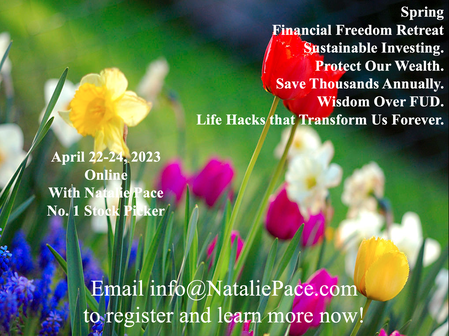 Join us for our Online Financial Freedom Retreat. April 22-24, 2023. Email [email protected] to learn more. Register with friends and family to receive the best price. Click for testimonials, pricing, hours & details.  Join us for an immersive sustainability adventure in Poundbury, England, March 20-27, 2023. Email [email protected] to learn more. Register by April 30, 2023 to receive the best price. Click for testimonials, pricing, hours & details.  Photo of Natalie Pace by Marie Commiskey. Powerscourt Ritz Carlton, Ireland. Photo of Natalie Pace by Marie Commiskey. Powerscourt Ritz Carlton, Ireland. Natalie Wynne Pace is an Advocate for Sustainability, Financial Literacy & Women's Empowerment. Natalie is the bestselling author of The Power of 8 Billion: It's Up to Us and is the co-creator of the Earth Gratitude Project. She has been ranked as a No. 1 stock picker, above over 835 A-list pundits, by an independent tracking agency (TipsTraders). Her book The ABCs of Money remained at or near the #1 Investing Basics e-book on Amazon for over 3 years (in its vertical), with over 120,000 downloads and a mean 5-star ranking. The 5th edition of The ABCs of Money was released on September 17, 2021. Natalie Pace's easy as a pie chart nest egg strategies earned gains in the last two recessions and have outperformed the bull markets in between. That is why her Investor Educational Retreats, books and private coaching are enthusiastically recommended by Nobel Prize winning economist Gary S. Becker, TD AMERITRADE chairman Joe Moglia, Kay Koplovitz and many Main Street investors who have transformed their lives using her Thrive Budget and investing strategies. Click to view a video testimonial from Nilo Bolden. Check out Natalie Pace's Apple Podcast. Watch videoconferences and webinars on Youtube. Other Blogs of Interest Fossil Fuels Touch Every Part of Our Lives Are There Any Safe, Green Banks? 8 Fires the Federal Reserve Board Needs to Put Out. 7 Ways to Stash Your Cash Now The 2 Best Solar Stocks Which Countries Offer the Highest Yield for the Lowest Risk? Rebalance By the End of March Solar, EVs, Housing, HSAs -- the Highest-Yield in 2023? Are You Anxious or Depressed over Money? Why We Are Underweighting Banks and the Financial Industry. You Stream all the Channels. Should You Invest, Too? NASDAQ is Still Down -26%. Are Meta & Snap a Buy? 2023 Bond Strategy Emotions are Not Your Friend in Investing Investor IQ Test Investor IQ Test Answers Bonds Lost -26%, Silver Held Strong. 2023 Crystal Ball for Stocks, Bonds, Real Estate, Cannabis, Gold, Silver. Tilray: The Constellation Brands of Cannabis New Year, New Healthier You Tesla's $644 Billion Fall From Mars Silver's Quiet Rally. Free Holiday Gift. Stocking Stuffers Under $10. Cash Burn & Inflation Toasted the Plant-Based Protein Companies Save Thousands Annually With Smarter Energy Choices Is Your FDIC-Insured Cash Really Safe? Giving Tuesday Tips to Make Your Charitable Contribution a Triple Win. Is Your Pension Plan Stealing From You? The FTX Crypto Fall of a Billionaire (SBF). Crypto, Gold, Silver: Not So Safe Havens. Will Ted Lasso Save Christmas? 3Q will be Released This Thursday. Apple and the R Word. Yield is Back. But It's Tricky. The Real Reason Why OPEC Cut Oil Production. The Inflation Buster Budgeting and Investing Plan. No. Elon Musk Doesn't Live in a Boxabl. IRAs Offer More Freedom and Protection Than 401ks. Will There Be a Santa Rally 2022? What's Safe in a Debt World? Not Bonds. Will Your Favorite Chinese Company be Delisted? 75% of New Homeowners Have Buyer's Remorse Clean Energy Gets a Green Light from Congress. Fix Money Issues. Improve Your Relationships. 24% of House Sales Cancelled in the 2nd Quarter. 3 Things to Do Before July 28th. Recession Risks Rise + a Fairly Safe High-Yield Bond DAQO Doubles. Solar Shines. Which Company is Next in Line? Tesla Sales Disappoint. Asian EV Competition Heats Up. 10 Wealth Strategies of the Rich Copper Prices Plunge Colombia and Indonesia: Should You Invest? 10 Misleading Broker/Salesman Pitches. Why are Banks and Dividend Stocks Losing Money? ESG Investing: Missing the E. Bitcoin Crashes. Crypto, Gold and Stocks All Crash. The U.S. House Decriminalizes Cannabis Again. The Risk of Recession in 6 Charts. High Gas Prices How Will Russian Boycotts Effect U.S. Multinational Companies? Oil and Gas Trends During Wartime Russia Invades Ukraine. How Have Stocks Responded in Past Wars? 2022 Crystal Ball in Stocks, Real Estate, Crypto, Cannabis, Gold, Silver & More. Interview with the Chief Investment Strategist of Charles Schwab & Co., Inc. Stocks Enter a Correction What's Safe in a Debt World? Money Market Funds, FDIC, SIPC: Are Any of Them Safe? My 24-Year-Old is Itching to Buy a Condo. Should I Help Him? The 12-Step Guide to Successful Investing. Gardeners Creating Sanctuary & Solutions in Food Deserts. The Bank Bail-in Plan on Your Dime. Rebalancing Your Nest Egg IQ Test. Answers to the Rebalancing Your Nest Egg IQ Test. Important Disclaimers Please note: Natalie Pace does not act or operate like a broker. She reports on financial news, and is one of the most trusted sources of financial literacy, education and forensic analysis in the world. Natalie Pace educates and informs individual investors to give investors a competitive edge in their personal decision-making. Any publicly traded companies or funds mentioned by Natalie Pace are not intended to be buy or sell recommendations. ALWAYS do your research and consult an experienced, reputable financial professional before buying or selling any security, and consider your long-term goals and strategies. Investors should NOT be all in on any asset class or individual stocks. Your retirement plan should reflect a diversified strategy, which has been designed with the assistance of a financial professional who is familiar with your goals, risk tolerance, tax needs and more. The "trading" portion of your portfolio should be a very small part of your investment strategy, and the amount of money you invest into individual companies should never be greater than your experience, wisdom, knowledge and patience. Information has been obtained from sources believed to be reliable. However, NataliePace.com does not warrant its completeness or accuracy. Opinions constitute our judgment as of the date of this publication and are subject to change without notice. This material is not intended as an offer or solicitation for the purchase or sale of any financial instrument. Securities, financial instruments or strategies mentioned herein may not be suitable for all investors. Polyester, Plastic, Gasoline, Natural Gas and Other Petrochemical Products Fossil fuels have become so pervasive in our lives that few of us are aware of just how many times we touch the pollutant daily. We take elevators, power our electronic devices, enjoy heating and cooling, and turn on light switches without acknowledging that 60% of the U.S. is still powered by fossil fuels. This varies state by state. Click to check on the source mix of your state’s power. Natural gas cooks most of our food. Many of us wear polyester clothing, and peel plastic off of our fresh produce. We step into our gasoline-powered vehicle, sit on vinyl seats and drive on asphalt – all oil derivatives. It’s not too far a stretch to say that most of our waking hours are spent touching or using fossil fuels. Many of us are learning which banks and financial services companies loan money to oil and gas companies and which politicians vote for drilling, and yet never look into the mirror to see just who is purchasing all of their wares. Divesting our lives of petrochemical products isn’t impossible. It begins with awareness and then requires bold choices and just saying “no” to oil. When we stop voting for fossil fuels with our purchasing dollars, companies will be forced to find another source of revenue. The real power lies in 8 billion consumers making informed, green choices. Until then, the companies that profit by selling us petrochemical products know that we don’t really mean it, no matter how many times we drive to a protest. Below is some of the crucial information we must become aware of to start the journey. The Biggest Polluters Oil and Gas Companies Plastic and Chemical Companies Textile Companies Greening Our lives Greening Our Investments And here is more color on each topic. The Biggest Polluters According to the Climate Accountability Institute, over 1/3 of all carbon emissions on the planet has come from just 20 companies in the fossil fuels industry. The list is topped by Saudi Aramco, followed by (in order) Gazprom (Russia), Chevron, ExxonMobil, National Iranian Oil Co., BP, Royal Dutch Shell, Coal India, Pemex (Mexico), PetroChina, Petroleos de Venezuela, Peabody Energy, ConocoPhillips, Abu Dhabi National Oil Co., Kuwait Petroleum Corp., Iraq National Oil Co., Total SA (France), Sonatrach (Algeria), BHP Billiton (Australia) and Petrobras (Brazil). Oil and Gas Companies Most of the companies above produce oil, gasoline and/or natural gas, which is still used to power most of our vehicles, heating, cooling and cooking. Transportation is the largest CO2 emitter in the U.S., and is the main reason why the Middle East, Australia, Canada and the United States has a larger CO2 footprint than the rest of the world – 2-3 times or more than most of Europe. Plastic and Chemical Companies Over half of each barrel of oil is used to produce plastic, polyester, rubber, vinyl, asphalt and other petrochemical products. Sadly, vinyl chloride was one of the cancer-causing toxins that was spewed all over Palestine, Ohio during the February 3, 2023 train derailment. This chemical is used to make vinyl seats in cars and plastic kitchenware. Other chemicals that were spilled are used to make plastic, printing ink, paint and household cleaners, and as resins to cover paper. The blame for the spill and cleanup costs are currently falling on Norfolk Southern (the train), which is being sued by the Department of Justice, on behalf of the U.S. Environmental Protection Agency (EPA). However, just because the companies that owned the chemicals on board have been kept out of the news and are virtually impossible to identify with an online search, doesn’t mean that they won’t eventually be held accountable for the health consequences of polluting the land and water in Palestine. On December 20, 2022, 3M announced that the company will end producing “forever chemicals,” at a cost of up to $2.3 billion. Perfluoralkyl and polyfluoroalkyl substances (PFAS) do not break down quickly and have in recent years been found in dangerous concentrations in drinking water, soils and foods. PFAs are used to make smart phones, semiconductors, Teflon, non-stick cookware, dental floss and even makeup. Dupont and 3M were both sued by the California Attorney General in November of 2022. In addition to horrifying accidents, cancer, water pollution and legal costs, plastics and other petrochemical companies are facing increased costs of raw materials, combined with reduced demand. You might have noticed that more of our disposable flatware is now paper-based. All of the plastics and chemical companies I examined for this blog lost revenue in the 4th quarter from the same period a year ago. Debt and leverage are elevated. That can be a lethal combination in a rising interest rate environment. Which companies produce the most plastic? You might be surprised to learn that ExxonMobil does, according to the Stockholm Institute. However, there are 20 companies that are responsible for more than half of all of the single-use plastic that is thrown away globally, including Dow Inc. In addition to the plastic manufacturers, fast food and snack companies that thrive on throw-away culture, including Coca-Cola, Pepsi, McDonalds, Starbucks, are equally culpable. Oil companies, the suppliers of the feedstock for petrochemical products, are doing spectacularly. ExxonMobil lags the industry’s growth and profit margins, largely due to lackluster performance in the chemicals division, but remains the juggernaut (and the biggest polluter). Natural gas prices and refining margins were superstars on the most recent earnings report. Sadly, thanks to the war in Ukraine and the recent production cut by OPEC, oil, gasoline and natural gas prices are expected to remain elevated. The industry is one of the top performers of the S&P500, and will continue there as long as demand remains high and geopolitical conflicts (like the war between Russia and Ukraine) continue. Email [email protected] for a Petrochemical or Oil Stock Report Card. Textile Companies Did you know that the earliest polyester textile mills were often located at small gas stations, or that oil and gas companies began purchasing textile mills in the 1960s? Why? Because polyester fabric is composed of chemicals found in petroleum. Dupont, Reliance Industries and Eastman Chemical are some of the top producers. Greening Our Lives If we want to prevent more disasters like the Ohio train derailment, the BP Oil Spill and thousands of smaller, underreported calamities, then we must realize our power as consumers. If we refuse to buy these petrochemical products, the companies will race to find what it is that we do wish to buy and sell it to us. It’s not impossible to choose cotton clothing and other natural fibers, such as wool, alpaca and silk. While viscose and rayon are made from wood pulp, the process of converting them into fabric uses more water and energy than cotton, wool and silk. When natural fibers become the choice of consumers, the textile manufacturers and fashion designers will respond. One example of the power of consumers is the trend in electric vehicles, which is the fastest growing vertical in auto manufacturing. General Motors committed to an all-electric fleet by 2035 – after Tesla virtually put both GM and Ford out of the sedan business with its Model 3. Tesla couldn’t keep up with demand, and is still backordered after opening up two more factories in Germany and China. We can also just say no to plastic. We can choose to walk and ride our bikes more, which is healthier for us and the planet. There is no excuse for single use anything. When I forget to bring my reusable container, I just wait until the next time for my espresso, or find a café that has porcelain cups instead of drink-and-toss. My backpack is something I never leave home without – in case I need to pick up a few things on my walk. In the beginning these choices are breaking habits – so they feel inconvenient or even annoying. And then they become the new habit. Greening Our Investments There are only 30 companies in the Dow Jones Industrial Average. Of those 30, seven are involved in profiting from and promoting fossil fuels and plastics – almost ¼. Similarly, the ESG (environmental, social and governance) index is missing the E: Environment. Over 20% of the companies in ESG funds are associated with fossil fuels, and none are actively promoting harmony or the healing of our planet. Including the E in these funds is essentially false advertising. (This is certainly not the 1st time that we’ve seen false advertising in the names of investment funds.) Getting all of the polluters out of our portfolio will be challenging initially. However, we can start by avoiding Dow Jones Industrial Average index-linked funds. At our Financial Empowerment Retreat, you’ll learn how to see which companies are in all of the funds that you own in your retirement and managed brokerage accounts. Once we know what we own, we can make conscious choices and changes. Until then, we are invested in and profiting from the polluters. Bottom Line Whether we are interested in sustainability, or just profits, there is a case to be made for jettisoning companies that pollute our planet, and carry the potential liabilities and costs of those actions. If we want to stop the polluters, we have to stop buying the products. We must be the change our planet needs to heal. You can learn more about how to reduce your personal CO2 footprint in my book The Power of 8 Billion: It’s Up to Us. The ebook will be free for 5 days, starting on Earth Day (April 22nd). You can green your portfolio with the tools you gain by attending our April 22-24, 2023 Financial Empowerment Retreat. Join us for an immersive Sustainability Adventure in Poundbury, England (one of the most sustainable communities in the world) on Sept. 20-27, 2023 to step into new possibilities that will change your way of thinking, living and investing forever. Click on the blue-highlights to access the flyers, where you will learn more. Email [email protected] or call 310-430-2397. We’re happy to answer your questions and to register you. Email [email protected] or call 310-430-2397 if you are interested in learning time-proven investing, budgeting, debt reduction, college prep and home buying solutions that will transform your life and heal our planet at our next Financial Freedom Retreat. We spend one full day on what's safe, helping you to protect your wealth and reduce money stress. 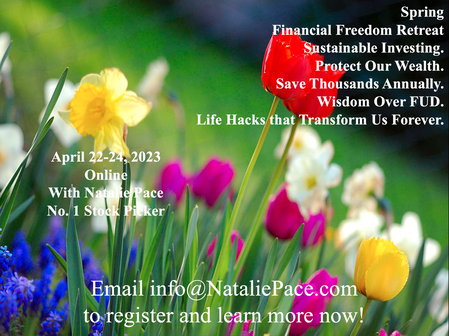 Join us for our Online Financial Freedom Retreat. April 22-24, 2023. Email [email protected] to learn more. Register with friends and family to receive the best price. Click for testimonials, pricing, hours & details.  Join us for an immersive sustainability adventure in Poundbury, England, March 20-27, 2023. Email [email protected] to learn more. Register by April 24, 2023 to receive the best price. Click for testimonials, pricing, hours & details.  Photo by Brian McLernon. Photo by Brian McLernon. Natalie Wynne Pace is an Advocate for Sustainability, Financial Literacy & Women's Empowerment. Natalie is the bestselling author of The Power of 8 Billion: It's Up to Us and is the co-creator of the Earth Gratitude Project. She has been ranked as a No. 1 stock picker, above over 835 A-list pundits, by an independent tracking agency (TipsTraders). Her book The ABCs of Money remained at or near the #1 Investing Basics e-book on Amazon for over 3 years (in its vertical), with over 120,000 downloads and a mean 5-star ranking. The 5th edition of The ABCs of Money was released on September 17, 2021. Natalie Pace's easy as a pie chart nest egg strategies earned gains in the last two recessions and have outperformed the bull markets in between. That is why her Investor Educational Retreats, books and private coaching are enthusiastically recommended by Nobel Prize winning economist Gary S. Becker, TD AMERITRADE chairman Joe Moglia, Kay Koplovitz and many Main Street investors who have transformed their lives using her Thrive Budget and investing strategies. Click to view a video testimonial from Nilo Bolden. Check out Natalie Pace's Apple Podcast. Watch videoconferences and webinars on Youtube. Other Blogs of Interest Are There Any Safe, Green Banks? 8 Fires the Federal Reserve Board Needs to Put Out. 7 Ways to Stash Your Cash Now The 2 Best Solar Stocks Which Countries Offer the Highest Yield for the Lowest Risk? Rebalance By the End of March Solar, EVs, Housing, HSAs -- the Highest-Yield in 2023? Are You Anxious or Depressed over Money? Why We Are Underweighting Banks and the Financial Industry. You Stream all the Channels. Should You Invest, Too? NASDAQ is Still Down -26%. Are Meta & Snap a Buy? 2023 Bond Strategy Emotions are Not Your Friend in Investing Investor IQ Test Investor IQ Test Answers Bonds Lost -26%, Silver Held Strong. 2023 Crystal Ball for Stocks, Bonds, Real Estate, Cannabis, Gold, Silver. Tilray: The Constellation Brands of Cannabis New Year, New Healthier You Tesla's $644 Billion Fall From Mars Silver's Quiet Rally. Free Holiday Gift. Stocking Stuffers Under $10. Cash Burn & Inflation Toasted the Plant-Based Protein Companies Save Thousands Annually With Smarter Energy Choices Is Your FDIC-Insured Cash Really Safe? Giving Tuesday Tips to Make Your Charitable Contribution a Triple Win. Is Your Pension Plan Stealing From You? The FTX Crypto Fall of a Billionaire (SBF). Crypto, Gold, Silver: Not So Safe Havens. Will Ted Lasso Save Christmas? 3Q will be Released This Thursday. Apple and the R Word. Yield is Back. But It's Tricky. The Real Reason Why OPEC Cut Oil Production. The Inflation Buster Budgeting and Investing Plan. No. Elon Musk Doesn't Live in a Boxabl. IRAs Offer More Freedom and Protection Than 401ks. Will There Be a Santa Rally 2022? What's Safe in a Debt World? Not Bonds. Will Your Favorite Chinese Company be Delisted? 75% of New Homeowners Have Buyer's Remorse Clean Energy Gets a Green Light from Congress. Fix Money Issues. Improve Your Relationships. 24% of House Sales Cancelled in the 2nd Quarter. 3 Things to Do Before July 28th. Recession Risks Rise + a Fairly Safe High-Yield Bond DAQO Doubles. Solar Shines. Which Company is Next in Line? Tesla Sales Disappoint. Asian EV Competition Heats Up. 10 Wealth Strategies of the Rich Copper Prices Plunge Colombia and Indonesia: Should You Invest? 10 Misleading Broker/Salesman Pitches. Why are Banks and Dividend Stocks Losing Money? ESG Investing: Missing the E. Bitcoin Crashes. Crypto, Gold and Stocks All Crash. The U.S. House Decriminalizes Cannabis Again. The Risk of Recession in 6 Charts. High Gas Prices How Will Russian Boycotts Effect U.S. Multinational Companies? Oil and Gas Trends During Wartime Russia Invades Ukraine. How Have Stocks Responded in Past Wars? 2022 Crystal Ball in Stocks, Real Estate, Crypto, Cannabis, Gold, Silver & More. Interview with the Chief Investment Strategist of Charles Schwab & Co., Inc. Stocks Enter a Correction What's Safe in a Debt World? Money Market Funds, FDIC, SIPC: Are Any of Them Safe? My 24-Year-Old is Itching to Buy a Condo. Should I Help Him? The 12-Step Guide to Successful Investing. Gardeners Creating Sanctuary & Solutions in Food Deserts. The Bank Bail-in Plan on Your Dime. Rebalancing Your Nest Egg IQ Test. Answers to the Rebalancing Your Nest Egg IQ Test. Important Disclaimers Please note: Natalie Pace does not act or operate like a broker. She reports on financial news, and is one of the most trusted sources of financial literacy, education and forensic analysis in the world. Natalie Pace educates and informs individual investors to give investors a competitive edge in their personal decision-making. Any publicly traded companies or funds mentioned by Natalie Pace are not intended to be buy or sell recommendations. ALWAYS do your research and consult an experienced, reputable financial professional before buying or selling any security, and consider your long-term goals and strategies. Investors should NOT be all in on any asset class or individual stocks. Your retirement plan should reflect a diversified strategy, which has been designed with the assistance of a financial professional who is familiar with your goals, risk tolerance, tax needs and more. The "trading" portion of your portfolio should be a very small part of your investment strategy, and the amount of money you invest into individual companies should never be greater than your experience, wisdom, knowledge and patience. Information has been obtained from sources believed to be reliable. However, NataliePace.com does not warrant its completeness or accuracy. Opinions constitute our judgment as of the date of this publication and are subject to change without notice. This material is not intended as an offer or solicitation for the purchase or sale of any financial instrument. Securities, financial instruments or strategies mentioned herein may not be suitable for all investors. |
AuthorNatalie Pace is the co-creator of the Earth Gratitude Project and the author of The Power of 8 Billion: It's Up to Us, The ABCs of Money, The ABCs of Money for College, The Gratitude Game and Put Your Money Where Your Heart Is. She is a repeat guest & speaker on national news shows and stages. She has been ranked the No. 1 stock picker, above over 830 A-list pundits, by an independent tracking agency, and has been saving homes and nest eggs since 1999. Archives
July 2024
Categories |






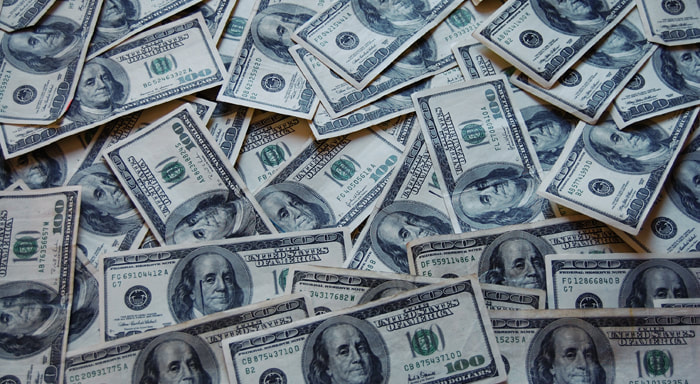

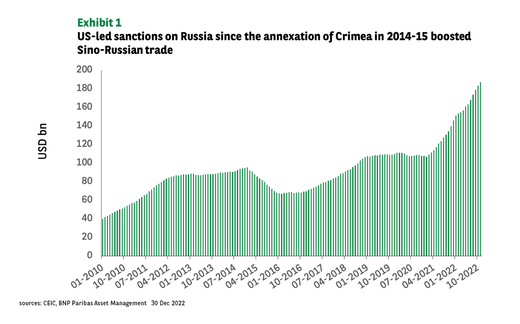
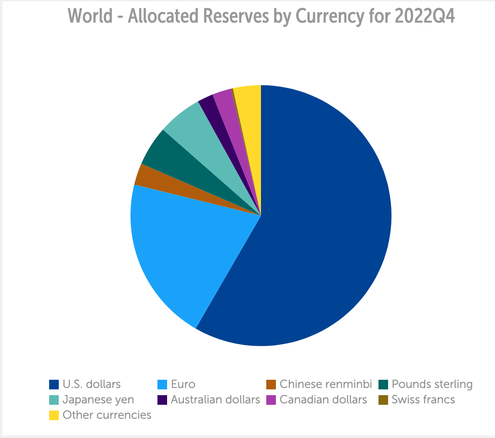
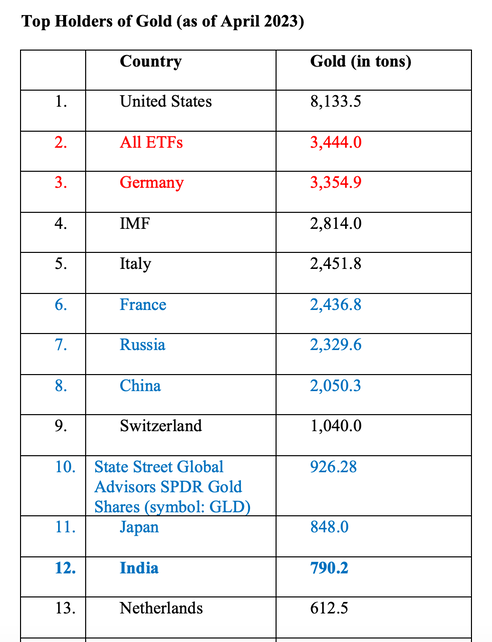

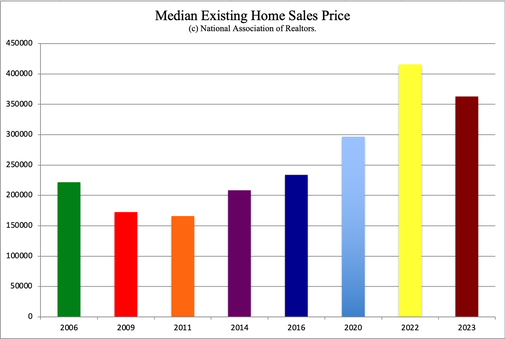
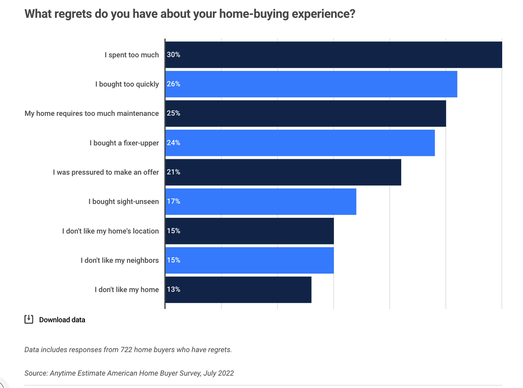



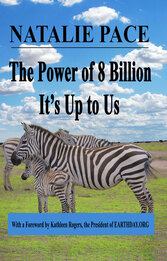




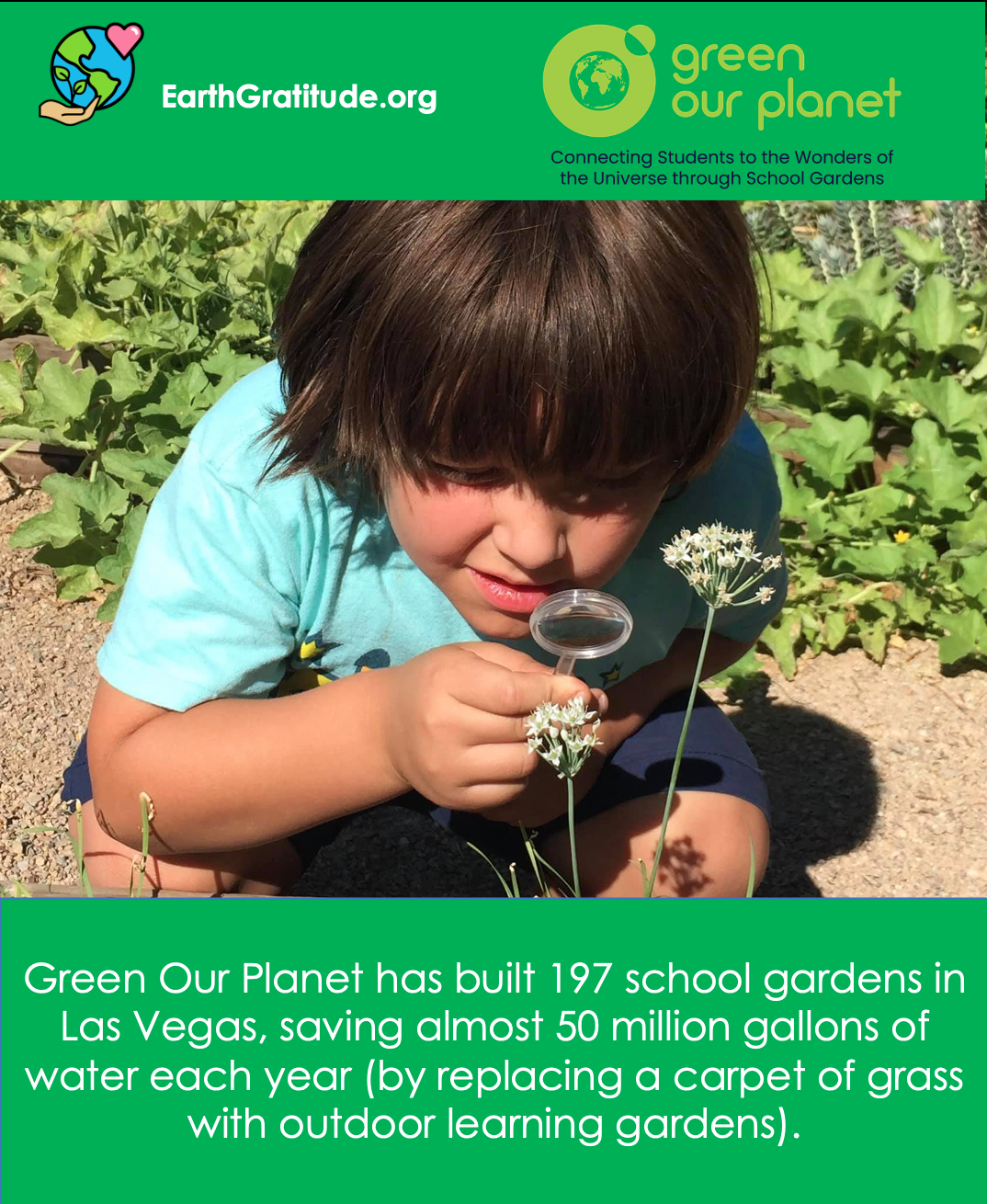









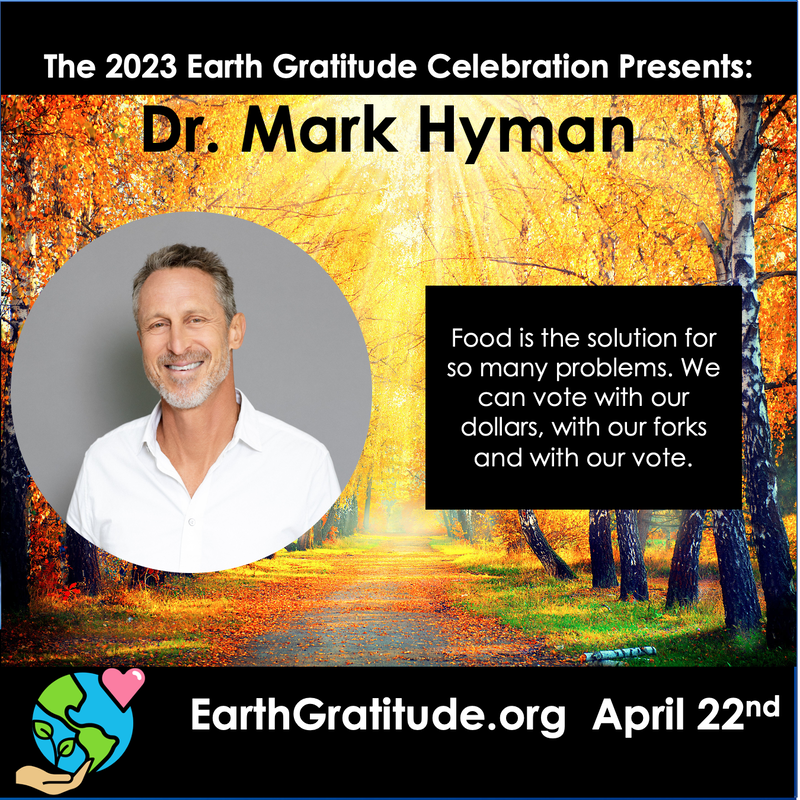



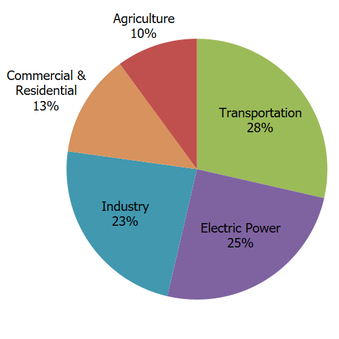




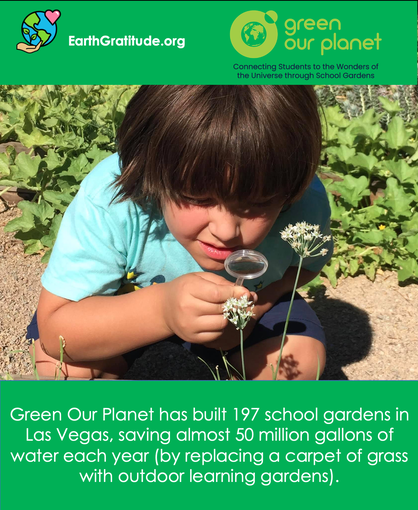
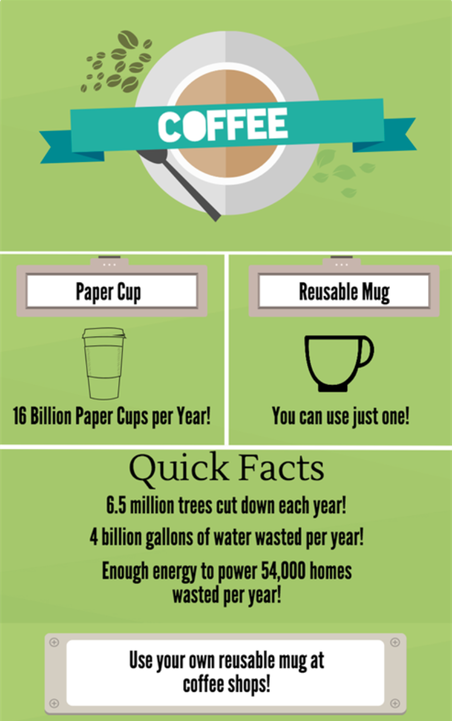
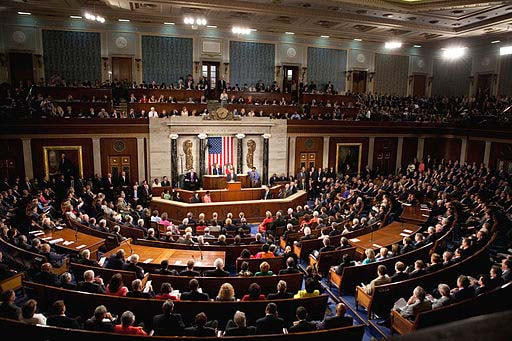
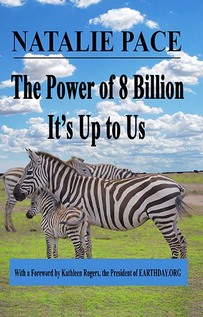

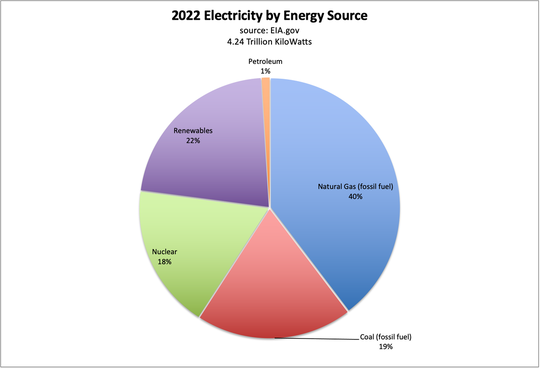
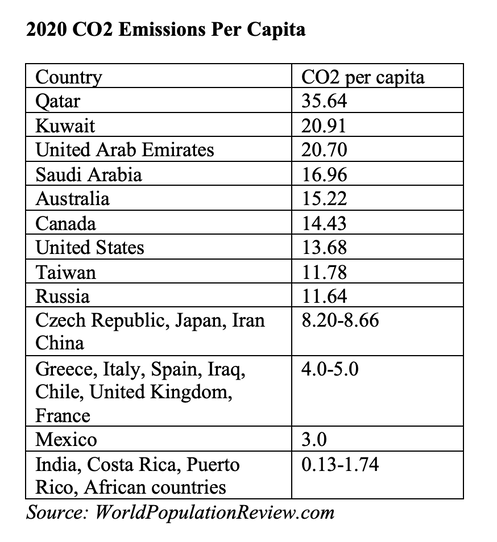
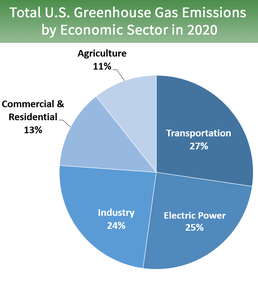
 RSS Feed
RSS Feed